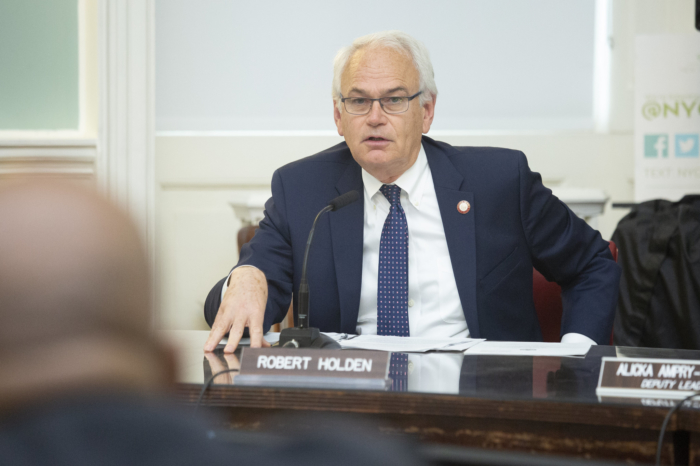By Prem Calvin Prashad
Last week Commerce Secretary Wilbur Ross skirted an April 1 deadline and consented to a request from the U.S. Justice Department to add a question on citizenship status to the 2020 U.S. Census. Across the borough, immigration activists are furious at the political implications of the move and have voiced concerns over the integrity of the data that is to be collected as immigrants may question the confidentiality of the data.
The census, which occurs every 10 years, is used by policy makers to make decisions on federal funding as well as apportion congressional districts. The census has not asked about immigration status since 1950 and it is unclear what the government’s motivations are for collecting this data. The American Community Survey, which is administered yearly and based on the census in 2010, is used to track demographic data and already contains questions on citizenship. Unlike the Census, however, the data is not used to apportion congressional districts.
In addition to falling asleep in government hearings, Ross is best known for overt hostility to foreign trade. His world view has made him a natural fit for the nationalist agenda of the Trump administration, which has positioned itself as opposed to immigration, legal and otherwise.
The change is being made over the objections of some in the leadership at the Census Bureau as well as the Census Scientific Advisory Committee – the experts that advise on the accuracy of the survey. In a statement, the panel blasted the re-introduction of the citizenship question as “flawed logic.” In a memo agreeing to the change, Ross cited the American Community Survey as evidence that the citizenship question was “tested” and asserted that adding the question would have a negligible impact on response rates as many of the undocumented had already decided not to participate.
The MinKwon Center for Community Action, an immigration advocacy group based in Flushing, blasted the change, asserting that Asian-American and immigrant communities are undercounted and warned that the immigration question will “only lead to fear and depressed response rates.” The organization is part of a broader advocacy coalition of 18 organizations called APA Voice, which aims to increase civic engagement in immigrant communities across the city.
In a Feb. 14 letter to Ross, APA Voice questioned the legitimacy of census data that includes a citizenship question and noted that Asian-Americans in particular would be affected by the census change, with two-thirds of the community being foreign born and one in five in a household with no one over the age of 14 fluent in English. The group sees efforts to force disclosure of immigration status as a move to intimidate immigrants and contrary to their efforts in ensuring that accurate data is collected in 2020. Historically, the Census Bureau has focused on matters such as translation of the questionnaires and outreach rather than politically charged issues.
There is precedent for undocumented persons to be wary about revealing their status to the government. Last year immigration hardliners sued New York City to prevent the destruction of data from the IDNYC program. The municipal ID program had enabled all New Yorkers, including the undocumented, to obtain a government picture ID that allowed some limited access to city services. Advocates were concerned that the data could be used by the Trump administration to track down undocumented persons.
Additionally, the undocumented youth that disclosed their status as part of the Deferred Action Against Childhood Arrivals program now face deportation after President Trump declared DACA “dead” after Congress refused to provide funding for the border wall. This breaks the covenant of trust these youth had placed in the federal government.
In short, this move to require a citizenship question on the census is consistent with the Trump administration’s obsession with tracking and counting undocumented persons. As mass deportation remains unfeasible, the administration has pivoted to removing them from the public eye, through the targeted detention and deportation of activists, raids on “sanctuary cities” to intimidate undocumented immigrants who live openly. Though the undocumented cannot vote (and allegations of “voter fraud” remain a fantasy) the communities they live in elect representatives who grant them the voice they would otherwise be denied. It’s hard not to see a political motive behind this move.
































